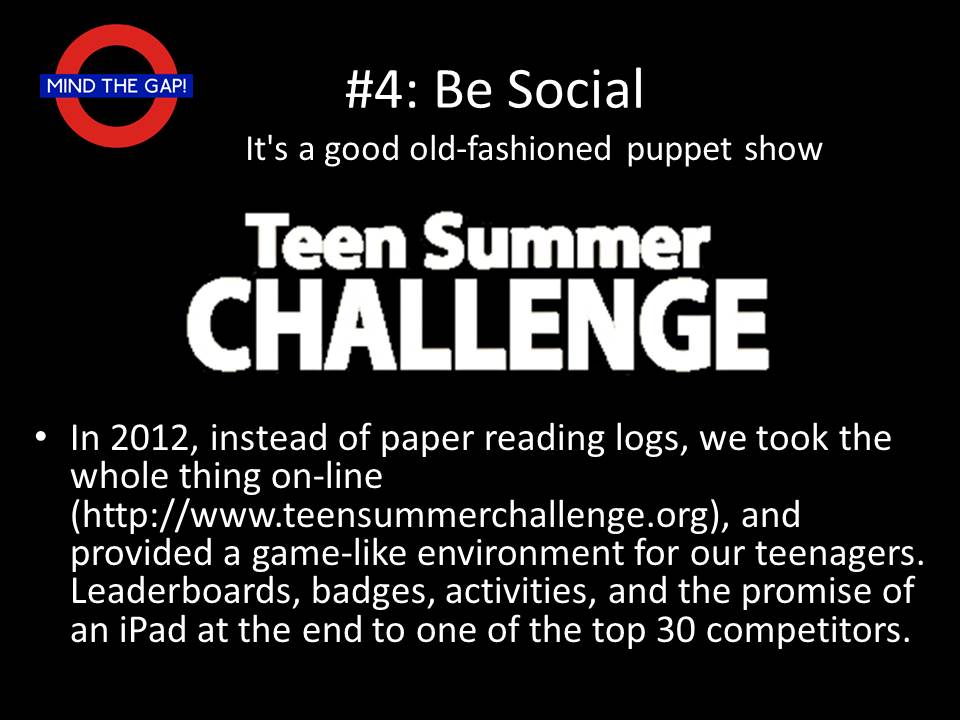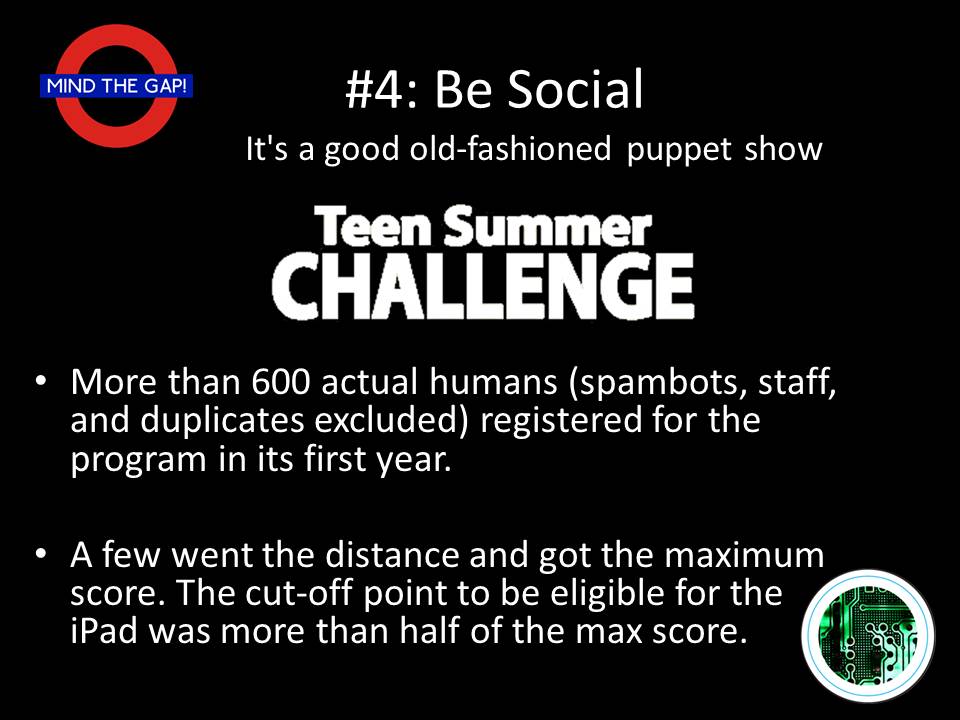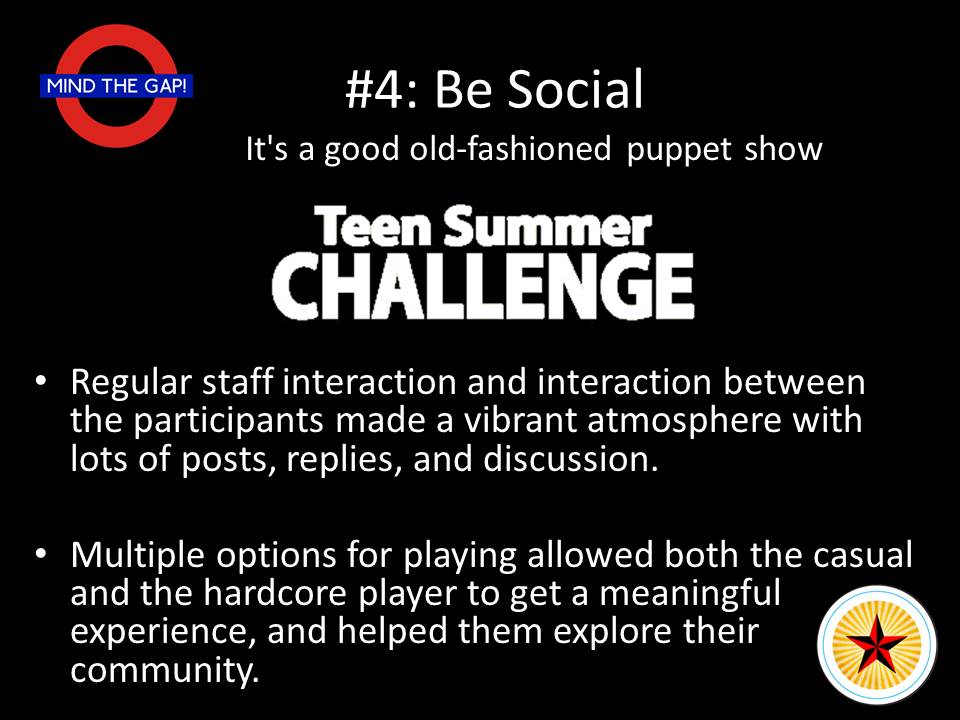A good example of both letting go of control and in trying to build a great community online is the project Pierce County Library System launched in 2012 - Teen Summer Challenge.

With the Teen Summer Reading program not doing particularly well - lots of ways to hide the statistics to make it seem like things were doing better than they actually were, but it was a small amount of people doing a lot of reading to make those numbers look good. The teen librarians at the time, Meredith Hale (@ladyluck131) and Jami Schwarzwalder, took the Search Institute's 40 Developmental Assets and paired them up with a new trend just emerging onto the World Wide Web - gamification. In gamification, activities that were normally just activities became wrapped in a game-like environment, adding points, badges, achievements, social elements, and more to produce a more game-like experience. As a guide, Meredith and Jami used Bartle's four types of MUD player, first released in 1996 (proving that librarians know how to make the old new again quite well), and given a more modern-looking form as the Bartle Test of Gamer Psychology to try and incorporate elements to the game that would appear to a diverse range of players.
Their conclusion was to discard the idea of reading (in its myriad forms) as the single defining thing for a summer program, and so reading became one of many activities and experiences laid out for teens in what is branded the Teen Summer Challenge. The challenge itself was spun out to a Wordpress installation, using mostly off-the-shelf plug-in components like BuddyPress to build the achievements, activities, leaderboards, and social spaces that would comprise the challenge, augmented where affordable through contact with the developers of those plugins and occasional commissioned code.

The first year of the Challenge, 2012, did quite well in terms of participation (600+ registrations, of which a little over 50% performed an action to earn points) compared to the previous year's reading-only program (a little over 100 participants). Feedback was generally positive, and there was a lot of learning experience about building and running a community for the teen librarians and their supporting staff, dubbed the Grand Master Committee (GMC). (A fuller write-up of Teen Summer Challenge is available as a chapter in Teen Games Rule! A Librarian's Guide To Programs And Platforms) Since Teen Summer Challenge only officially runs during the school break in summer, if you want to observe the platform during a live session, you'll have to visit then.

An important part of the success of the Teen Summer Challenge was the direct interaction of staff people and teens. With regular feedback and interaction with people, and good staff modeling, teens interacted with each other over the platform as much as they did with the staff. A community, given the seeds of similar interests and activities, built themselves and took off. And with multiple ways to play at the game, based on the Bartle types, a wide swath of potential players came on board and were able to have a meaningful experience for their summer programming while sharing the things they were doing over the summer with each other. It worked out well enough that Teen Summer Challenge is likely part of the summer set-up for Pierce County Library for some time to come.